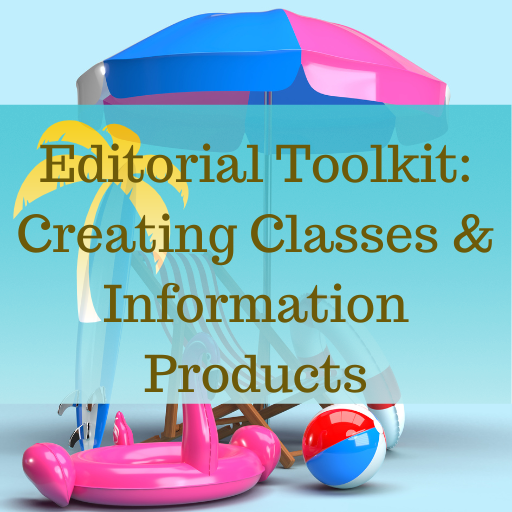Why NOT to license your content
How can I get someone else to license my content?
I got this question a while back and I’ve been pondering what I want to say about it ever since. The idea is that if you’ve written a novel, say, you might be able to license it to a movie or television producer and earn some income. Or a game company or whatever else.
I’ve occasionally had content licensed – a novel I wrote was optioned by a movie producer, a story I wrote was licensed as part of a social media platform rollout, a nonfiction book I wrote was turned into a card deck – but none of this happened because I tried to get my content licensed. They happened because someone I knew (who also knew my work) was in a position to offer licensing. It was never because I did something that another person could replicate.
This is very different from my experience of getting client work. For example, I’ve gotten a ton of editorial work from publishers just by asking. (I have credentials and experience, so I’m making this sound simpler than it is – but it is pretty simple. Anyone with some editorial experience can do it.)

…Why NOT to license your content
I reached the conclusion that to try to find someone to license your content – that is, someone who would pay you money to use your words and ideas – would be a great way to waste a lot of time chasing after gate-keepers and begging them to hold still long enough for you to make a pitch.
Once upon a time, that was how it had to be done. If you wanted an audiobook of your novel, you had to have your novel licensed by an audiobook company. If you wanted to turn your nonfiction book into a card game, you had to license the content to a game company.
It’s not that way anymore.
If you want an audiobook, you can make an audiobook. If you want a card game, you can make a card game.
Of course, it does require time, effort, and money, but so does chasing after gate-keepers. And chasing after gate-keepers can be a very disempowering, disappointing experience.
Think about taking control of your own work instead.
Other Helpful Content
Let the manuscript teach you how to edit it
One of the lessons I’ve learned over many years of editing is that you have to let the manuscript teach you how to edit it. Every manuscript is different and every manuscript needs a different touch. Even when an author does something I’ve seen many times before, I have to edit for that particular manuscript,…
Helping Authors Strengthen Story Settings
The setting of a novel consists of multiple elements, big and small, that nest inside each other like those little Russian dolls. We might show this hierarchy of settings like so: If you think about it, the micro setting of “the living room of 601 San Mateo Road Apartment 16” implies the existence of all…
Setting problems: lack of concrete locations
Writers often use setting like a painted backdrop to their stories, rather than as an integral element of their storytelling. As DEs, we can help them make the setting come to life. If we think of Wuthering Heights, we think of the Yorkshire moors. When we think of Moby Dick, it’s a whaler on the…
Join the Club!
New to story editing? Begin at the beginning.



